Advancing Internet Universality to support sustainable development, digital collaboration and the WSIS+20 review
UNESCO
Session 241
Closing digital divides and further harnessing ICT for sustainable development via the WSIS +20 review and the Internet Universality ROAM-X indicators
UNESCO is organizing an 1-hour session on Internet Universality ROAM-X Indicators at World Summit on the Information Society (WSIS) Forum 2022, on April 26th 2022 to underline the synergies between the WSIS +20 review and the Internet Universality ROAM-X indicators and principles in closing digital divides and further harnessing ICT for sustainable development.
The Internet Universality ROAM-X Indicators framework consists of a set of 303 indicators including 109 core ones that aim to assess how well national stakeholders, including governments, companies and civil society perform in adhering to the ROAM principles of Rights, Openness, Accessibility and Multi-stakeholder participation, as well as 79 cross-cutting indicators concerning gender equality, youth, ethical dimensions and sustainable development.
UNESCO’s Internet Universality Indicators framework fills a standard-setting void at the global and national levels and proves a holistic research tool to unite all Internet stakeholders in all countries. Currently ongoing in 45 countries across five continents, the indicators provide experts of ICTs for sustainable development with tools to strengthen their alignment with the UN SG’s roadmap of digital cooperation and Global Digital Compact for the completion of the SDGs.
This workshop aims to highlight how an evidence-based policy making process can foster digital collaboration between UNESCO’s ROAM principles and WSIS+20 review to pinpoint gaps and make recommendations to improve national digital governance policies for sustainable development. Thus, the session will aim to achieve these four layers of purpose:
- Present the overall Internet Universality ROAM-X indicators project and present key outcomes and progress of national assessment results across the five continents.
- Trigger critical policy discussions on how to shape Internet governance and digital transformation for sustainable development by underlining synergies between WSIS +20 review and UNESCO’s ROAM principles and indicators.
- Share good practice and lessons learned from the methodology and process of conducting assessments of IUIs at national level.
- Encourage IGF stakeholders to join Dynamic Coalition of ROAM-X and encourage more countries and stakeholders to conduct voluntary assessment of ROAM-X.
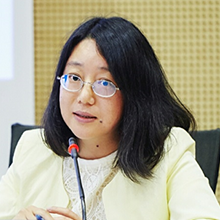
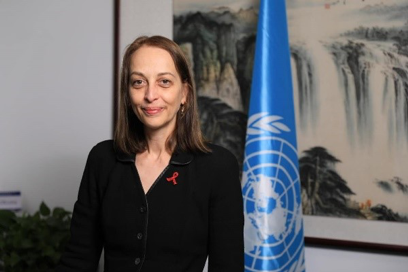
Dr. Marielza Oliveira (Brazil) is the UNESCO Director for Partnerships and Operational Programme Monitoring, Communications and Information Sector, since February 2021. From 2015 to 2020, she was Director of UNESCO Beijing, covering the 5 East Asian countries. Previously, she was the global Results Manager (data scientist) for UNDP, where she also held positions as country manager for a portfolio of Latin American countries (2001-2015). Previous positions also include Systems Engineer at the US Army Construction Engineering Research Lab/USACorps of Engineers (US, 1987-1991, where she was responsible for AI systems development), senior consultant at Fundacao Dom Cabral (Brazil, 1995-1999), and Director of Executive Education at Ibmec Business School (2000–2001). Dr. Oliveira holds a Master of Science in Finance (1990) and a Ph.D. in Business Administration (1995) from the University of Illinois at Urbana-Champaign, USA.

Sadaf Khan is the co-founder of Media Matters for Democracy, a Pakistan based organisation working on digital democracy and media and information literacy and Managing Editor of Digital Rights Monitor, a news website covering digital rights and Interent Governance in Pakistan. She has 18 years of experience in the media and development sector and has authored various publications. She is the lead researcher for the Pakistan National Assessment of Internet Universality Indicators and Media Development Indicators. She holds an MSc. in Media, Development and Communication from the London School of Economics and Political Science. She tweets at @nuqsh.
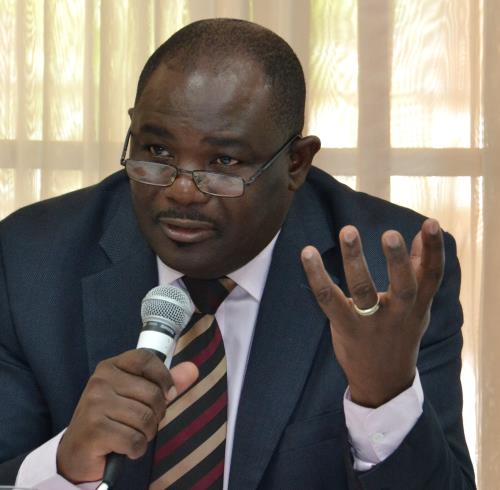
Cordel Green is an Attorney-at-Law, a former Assistant Attorney-General of Jamaica and a former broadcaster. He is the Executive Director of the Broadcasting Commission of Jamaica, which regulates electronic media.
His other affiliations include being Vice-Chairman of UNESCO Information For All Programme (IFAP), Chairman of the UNESCO-IFAP Working Group on Information Accessibility; Member of the International Institute of Communications (IIC); Advisory Board Member, Carnegie AI Equality Initiative (AIEI); and Honorary member of the Multicultural Media, Telecom and Internet Council, Washington DC.
Mr. Green holds Bachelor of Arts (Hons.) and Bachelor of Laws (Hons.) degrees from the University of the West Indies, a Master of Laws Degree with distinction, from the University of Sheffield in England, a Master of Business Administration degree from the Mona School of Business, and is an alumnus of the Harvard Kennedy School Executive Education Programme and a Chevening Scholar.
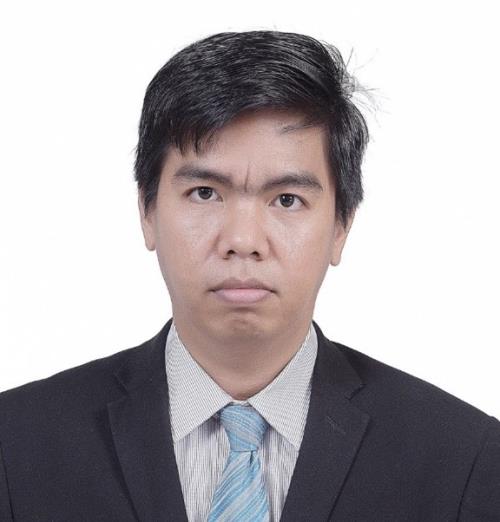
Mr. Chanty Pisal is the project coordinator of the Assessing Internet Development in Cambodia - Internet Universality Indicators (IUIs). Pisal is Director of Digital and Innovation Policy Research Center of the Cambodia Academy of Digital Technology (CADT). He also serves as the Research Fellow at Asian Vision Institute (AVI) and Vice-Director of the ASEAN ICT Center, ASEAN Digital Sector Body.
Pisal holds master’s degree in Public Policy specialized in Economic Policy and Policy Analysis from Australian National University, Australia, and master’s degree in Public International Law from University of Paris 8. He conducts research and study on digital economy, digital and internet policy, cybersecurity, ASEAN Law and integration, and public finance.

Mona Shtaya is a Palestinian digital rights defender working in the MENA region. She is working as Advocacy Advisor at 7amleh- The Arab Center for the Advancement of Social Media, and a non-resident scholar for the Middle East Institute (MEI). Mona is getting an MA in Social Media and Digital Communication at the University of Westminster. Mona Previously worked as the community outreach specialist at Transparency Palestine, the national chapter of Transparency International.
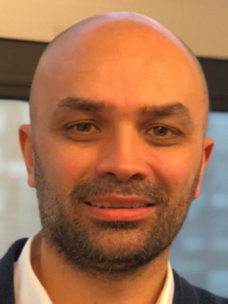
Deniz Susar’s main work areas include e-government, internet governance, smart cities, artificial intelligence, ICT indicators and in general using ICTs for sustainable development in general. He takes active role in preparation of annual Internet Governance Forum (IGF) meetings and its inter-sessional work. He also leads UN DESA activities on World Summit on Information Society (WSIS). He coordinates the work on smart cities with the Local Online Service Index (LOSI) as part of the United Nations E-Government Survey. He represents UN DESA in the Partnership on Measuring ICT for Development and works on ICT indicators to track progress in the achievement of the Sustainable Development Goals (SDGs). Deniz Susar holds a Master Degree on International Political Economy and Development from Fordham University, New York, and a Computer Engineering degree from the Bogazici University of Istanbul.
-
 C1. The role of governments and all stakeholders in the promotion of ICTs for development
C1. The role of governments and all stakeholders in the promotion of ICTs for development
-
 C2. Information and communication infrastructure
C2. Information and communication infrastructure
-
 C3. Access to information and knowledge
C3. Access to information and knowledge
-
 C4. Capacity building
C4. Capacity building
-
 C5. Building confidence and security in use of ICTs
C5. Building confidence and security in use of ICTs
-
 C6. Enabling environment
C6. Enabling environment
-
 C9. Media
C9. Media
-
 C10. Ethical dimensions of the Information Society
C10. Ethical dimensions of the Information Society
Internet Universality encompass all WSIS Action lines and particularly contributes to the Line 3 Access, Line 9 media , Line 10 Ethics and Line 11 on international cooperation since it is a comprehensive framework to assess and improve digital transformation in adhereing to international standards of human rights, openness, accessible by all and multi-stakeholder participation.
-
 Goal 4: Ensure inclusive and equitable quality education and promote lifelong learning opportunities for all
Goal 4: Ensure inclusive and equitable quality education and promote lifelong learning opportunities for all
-
 Goal 5: Achieve gender equality and empower all women and girls
Goal 5: Achieve gender equality and empower all women and girls
-
 Goal 10: Reduce inequality within and among countries
Goal 10: Reduce inequality within and among countries
-
 Goal 16: Promote just, peaceful and inclusive societies
Goal 16: Promote just, peaceful and inclusive societies
-
 Goal 17: Revitalize the global partnership for sustainable development
Goal 17: Revitalize the global partnership for sustainable development
This session will allow UNESCO to present how Internet Universality levages digital reforme for sustainable development and empowers stakeholders from various sectors to support the evolution of their national digital and social environments via the national assessment of Internet Universality Indicators. The implementation process of Internet Universality particularly tackles the structural issues to share knowledge, lessons learned and good practices for the completion of the 2030 Agenda for Sustainable Development Goals.
For more information on the IUIs project and the Dynamic Coalition of ROAM-X, kindly visit the dedicated webpages: https://en.unesco.org/internet-universality-indicators along with https://en.unesco.org/feedback/join-our-internet-universality-community








